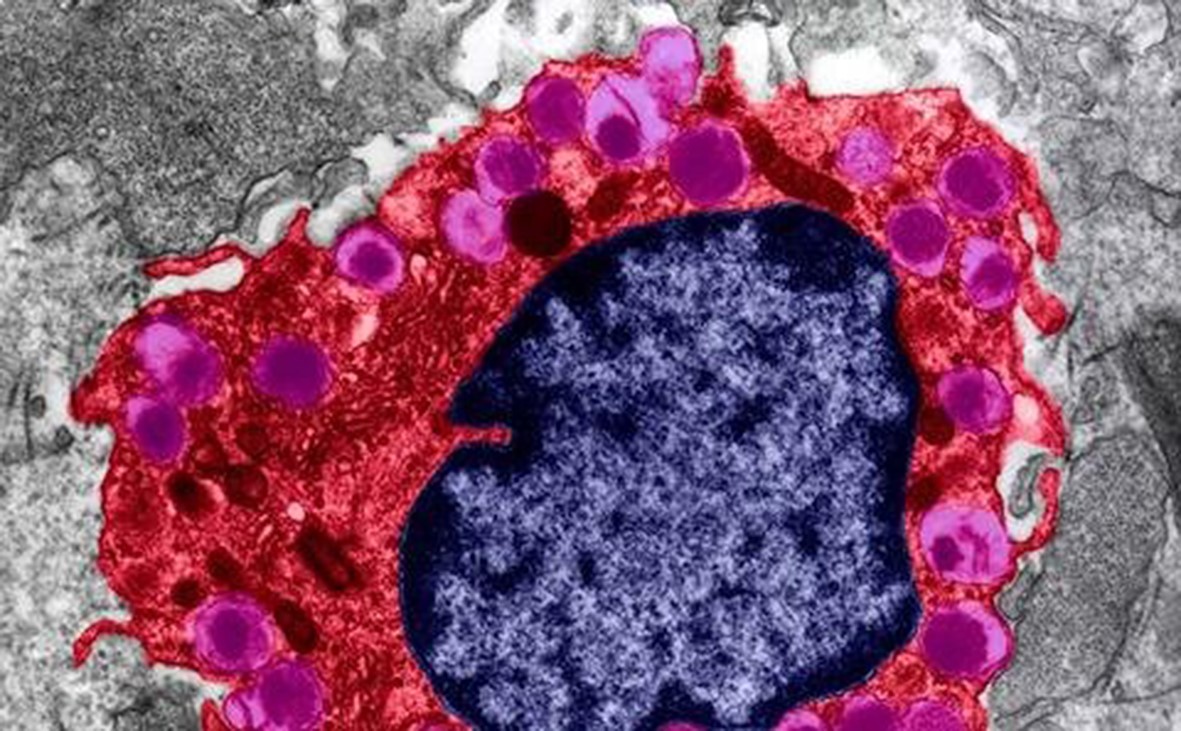
Inflammation lay summaries
- BRAIN UK Ref: 25/019 – Multimodal approach to investigate pathomechanisms and biomarkers for early diagnosis of Rasmussen Encephalitis (RE)Rasmussen Encephalitis (RE) is a rare and devastating brain disease affecting children, leading to uncontrollable seizures, one-sided paralysis, and loss of speech or learning ability…Read more
- BRAIN UK Ref: 25/011 – Transcriptomics analysis of cerebral amyloid angiopathy-related inflammationAduhelm is a new treatment for Alzheimer’s disease that has been approved in the United States. This treatment involves immunotherapy against a protein that… Read more
- BRAIN UK Ref: 25/009 – IBM-Path: ISGlyation in IBM skeletal MuscleInclusion Body Myositis (IBM) is a rare disease where the immune system mistakenly attacks the muscles, causing them to weaken. IBM is especially puzzling because patients don’t just have immune-related muscle damage…Read more
- BRAIN UK Ref: 23/011 – Clinicopathological correlations of immune response in inflammatory neuropathiesSome people have problems with their nerves that cause pain, weakness, numbness or tingling in their arms or legs. These problems are called inflammatory neuropathies… Read more
- BRAIN UK Ref: 23/002 – Juvenile Dermatomyositis Cohort and Biobank StudyJuvenile dermatomyositis (JDM) is a rare autoimmune condition in which the body’s defence system (designed to stop infections) attacks muscles and skin leading to muscle weakness and skin rashes… Read more
- BRAIN UK Ref: 22/019 – Delving deeper into the appearances and pathophysiological mechanisms of immune checkpoint inhibitor-induced hypophysitisImmunotherapies are anti-cancer drugs that activate the patient’s immune system. This makes it more effective at killing cancer cells. However, the immune system can sometimes attack normal organs… Read more
- BRAIN UK Ref: 21/024 – Entrapment of lipoprotein particles in the brain drives Alzheimer’s diseaseCholesterol is essential to the maintenance and function of the nerve cells. It is delivered to the cells via particles called lipoprotein. The space that the particles have to go through is a narrow cleft between… Read more
- BRAIN UK Ref: 21/023 – To understand the pathophysiology of Amyloid-Related Imaging Abnormalities (ARIA)A new treatment for Alzheimer’s disease has recently been approved in the United States (Aduhelm). However, there is a problem with a side effect… Read more
- BRAIN UK Ref: 21/015 – Neurobiology of inflammation-driven behaviour changesSymptoms and behaviour change, such as depressed mood, fatigue, social withdrawal, increased pain sensitivity and cognitive impairment, are important due to the burden of disease they impose… Read more
- BRAIN UK Ref: 20/007 – Investigation of neuropathological changes in COVID-19COVID-19 is a disease caused by a virus called SARS-CoV-2 which was first reported in China at the end of 2019, but soon after the virus spread across the world causing a pandemic… Read more
- BRAIN UK Ref: 19/018 – Somatic mutation in human macrophages: Defining ontogeny and mechanisms of inflammatory diseaseMacrophages are cells which form a crucial role in the integrity of the normal immune system but also in the generation of inflammatory diseases. We wish to study what role these cells have… Read more
- BRAIN UK Ref: 16/014 – Effect of hypothermia treatment on brain inflammation and development in neonatal hypoxic ischemia encephalopathyNeonatal Hypoxic Ischaemic Encephalopathy (HIE) is a significant worldwide problem that affects 1.3 to 1.7 per 1000 live births in UK. It occurs in babies who have been starved of oxygen around the time of birth… Read more
- BRAIN UK Ref: 16/003 – Activation of the type 1 interferon response by nucleic acidsNeurolupus is a serious brain disease which affects most patients who suffer from the autoimmune disease systemic lupus erythematosus (SLE). It can be very disabling, the cause is not known and treatment options are limited… Read more
- BRAIN UK Ref: 13/002 – Investigating inflammation of the normal appearing brain in patients with low-grade gliomaA brain tumour can be defined as a mass lesion that is composed mostly of abnormal cells that grow in the brain. The cells can come from the brain itself or from its coverings… Read more
- BRAIN UK Ref: 12/009 – Investigation into the impact of systemic inflammation due to infection on microglial phenotype and its contribution to Alzheimer’s disease neuropathologyWhen we have an infection we feel sick and uninterested in things. This is known as “sickness behaviour” and is transitory. Studies have shown that this occurs because certain brain cells… Read more
- BRAIN UK Ref: 12/007 – Regulation of microglial proliferation and its contribution to chronic neurodegenerationLay summary not available.
- BRAIN UK Ref: 12/002 – Neuropathology of autoimmune/limbic encephalitis associated with antibodies against voltage-gated potassium channelsAutoimmune encephalitis is a relatively uncommon disorder typically associated with an underlying cancer. A number of sub-types have been described associated with molecules called antibodies directing inappropriate… Read more
- BRAIN UK Ref: 12/001 – Pilot study to identify mast cells and basophils in brainParticular cell types in the central nervous system called mast cells and basophils are involved in the normal immune response to inflammation… Read more
- BRAIN UK Ref: 11/003 – Pilot study: Microglia profile in schizophreniaSchizophrenia is a disorder affecting normal cognition resulting in a breakdown of coherent thought and speech processes and social and behavioural dysfunction… Read more
- BRAIN UK Ref: 11/002 – Pilot study comparing microglial markers in different neurological diseases known to be associated with inflammationA particular cell type in the central nervous system called microglia are involved in the normal immune response to inflammation caused by processes such as infection, traumatic injury and inflammatory diseases… Read more
- BRAIN UK Ref: 11/001 – Role of neutrophils in the pathogenesis of neuromyelitis opticaNeuromyelitis optica (NMO, Devic’s disease) is an autoimmune inflammatory disorder of the central nervous system which results in the loss of the conducting sheath of nerve fibres… Read more
